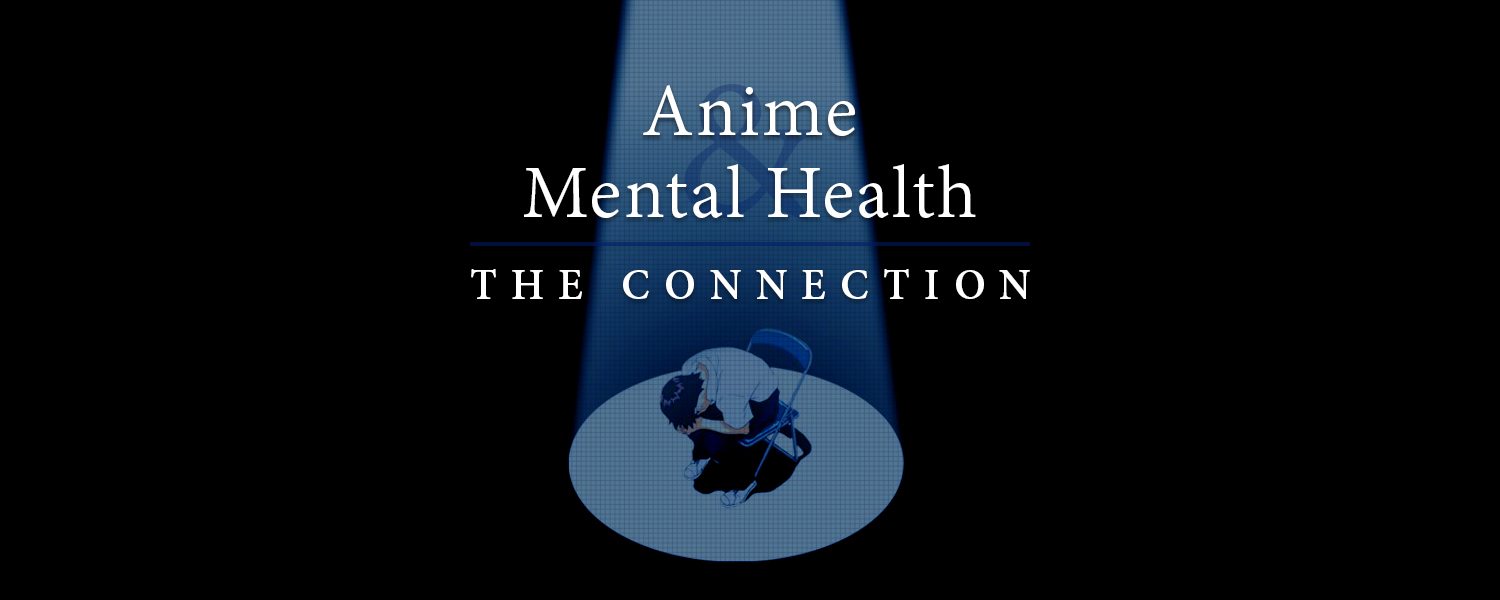Anime has been one of the only few mediums that openly deals with issues like depression, anxiety, psychosis, PTSD, and many other conditions. It unapologetically portrays it in a raw, gritty manner, not pulling any punches and it’s just…real.
As someone who has been in this world for some time, there is an authenticity to it, an authenticity that you just can’t find anywhere else. I never set out to be an advocate for mental health, it was never something I was passionate about because I didn’t understand it. As a matter of fact, it terrified me because of the stigma that is associated with it. It wasn’t until I was diagnosed with depression and anxiety that I really began to understand what it’s like to live with something like a mental illness, what pain really was, and what it’s like to live in a world that fears and misunderstands you. I may sound a bit dramatic, but when you’re constantly told that your condition is something of an imaginary concept and these feelings that you have aren’t valid, you get fed up and want to speak out what is in your soul.
It’s hard to explain what it’s like to someone who doesn’t have a mental illness what it’s like to have one. I only know how I feel on my darkest days, and I am very different from someone else with a similar condition. That’s what makes this so hard: no two people with a mental illness are exactly alike. What works for one may not work for another, it’s not an exact science; it’s mostly trial and error because the human brain is one of the most mysterious “organs” of the body.
Here are just a few characters that I relate to, and characters that I think portray what it’s like to live within this often dark world. I have done my best to explain how the subjects of anime and mental illness relate.
The following character analysis contains spoilers so read with caution!
Yuki Takeya: School-Live!
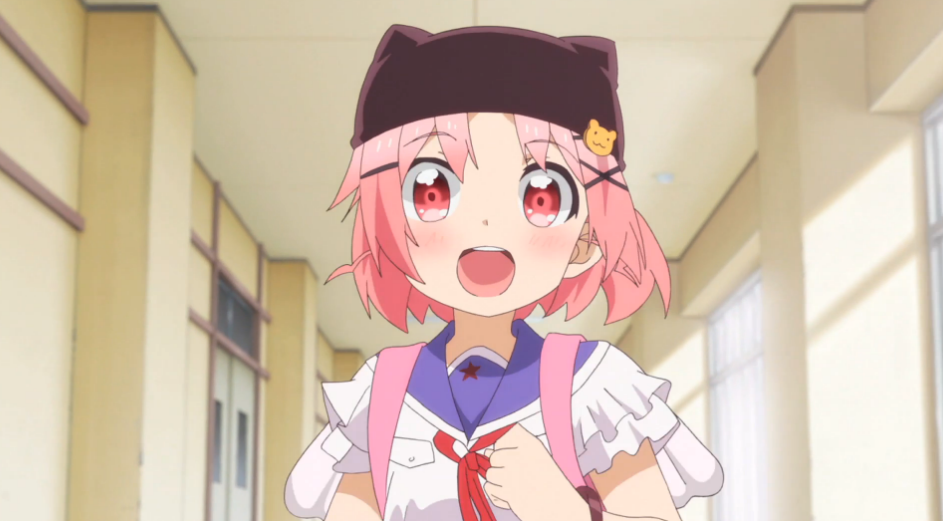
Yuki is a classic case of someone dealing with PTSD (Post Traumatic Stress Disorder) and psychosis. The National Institute of Mental Health (NIMH) classifies PTSD and psychosis as so:
“PTSD develops after a terrifying ordeal that involved physical harm or the threat of physical harm. The person who develops PTSD may have been the one who was harmed, the harm may have happened to a loved one, or the person may have witnessed a harmful event that happened to loved ones or strangers.”
“The word psychosis is used to describe conditions that affect the mind, where there has been some loss of contact with reality. When someone becomes ill in this way it is called a psychotic episode. During a period of psychosis, a person’s thoughts and perceptions are disturbed and the individual may have difficulty understanding what is real and what is not. Symptoms of psychosis include delusions (false beliefs) and hallucinations (seeing or hearing things that others do not see or hear). Other symptoms include incoherent or nonsense speech, and behavior that is inappropriate for the situation.”
She sees the world as she wants it to be and not how it really is. After witnessing both her classmate Kurumi kill her senpai because he turned and her favorite teacher sacrifice herself to the zombies, Yuki completely shuts down. She enters a psychosis where it is not the apocalypse and everything is as it should be: she’s at school with her friends, she regularly goes to classes, and she enthusiastically bounds through the hallways as if nothing has happened. The most tragic part of this situation is her dealing with the death of her favorite teacher Megumi. She still speaks and addresses her as if she is still there, even having hallucinations of her.
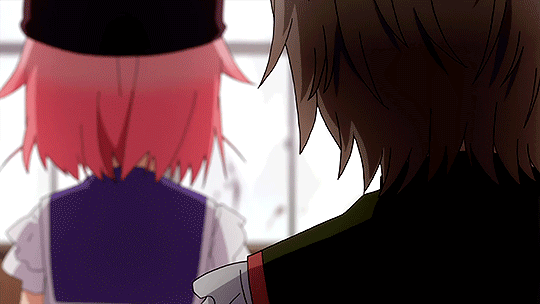
As the show progresses we find that Yuki’s world is slowly collapsing around her and she is forced to accept the fact that her favorite teacher is in fact dead, and her life as she knew it has changed. It’s often very hard to watch and even the most experienced doctor has trouble with patients suffering with these conditions.
Shinji Ikari – Neon Genesis Evangelion
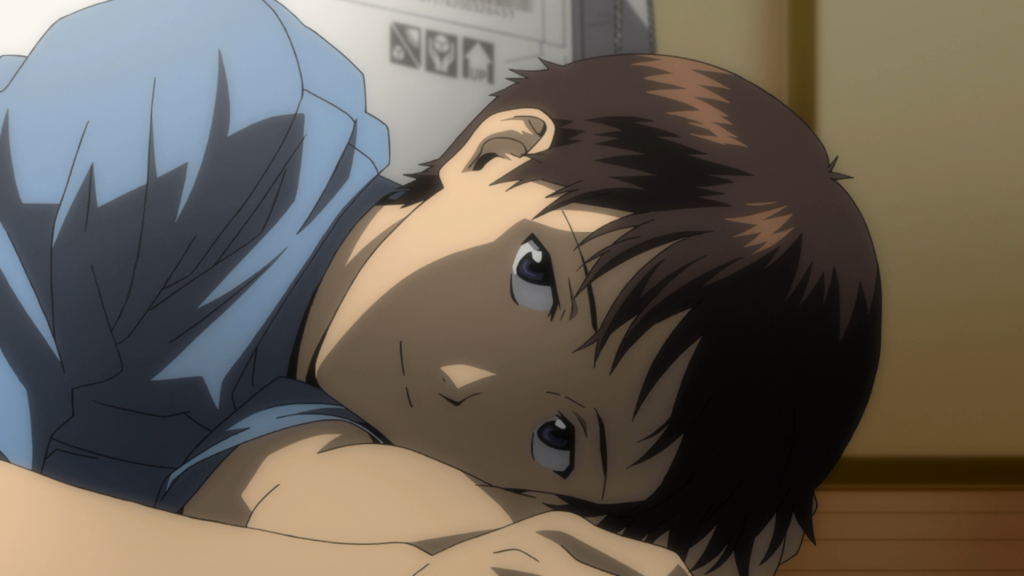
Shinji, like me, suffers from major depression and anxiety. If he’s not isolating himself and questioning his will to live, he’s constantly seeking approval from his peers to make up for his lack of self-worth. (Source) Going back to the NIMH, it has several definitions for depression, so I’ve somewhat formed my own: It is a condition where you feel worthless; no matter what you do, it doesn’t amount to anything. You hurt and you want to cry, but you have no idea why, nor is there a good reason for it. It’s like a dark cloud hanging over you that is constantly telling you how stupid, worthless, and insignificant you are. Add anxiety into the mix and you have this feeling of falling and seeing the floor coming up fast on you—all the time.
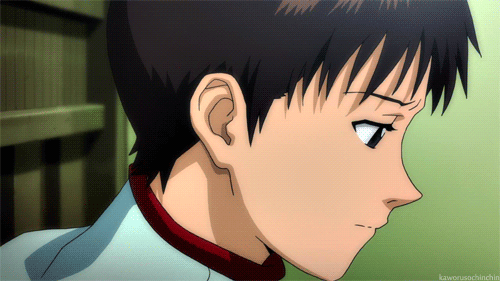
Shinji is constantly questioning his worth, he’s always worrying about what others think of him, and he’s contemplating that he’s just not worth anything. The creator, Hideaki Anno, suffered from depression and psychosis. He actually wrote the original ending during a psychotic break; the show is said to be a projection of the author’s own mental state (Source).
Sakurako Kujō : Beautiful Bones: Sakurako’s Investigation
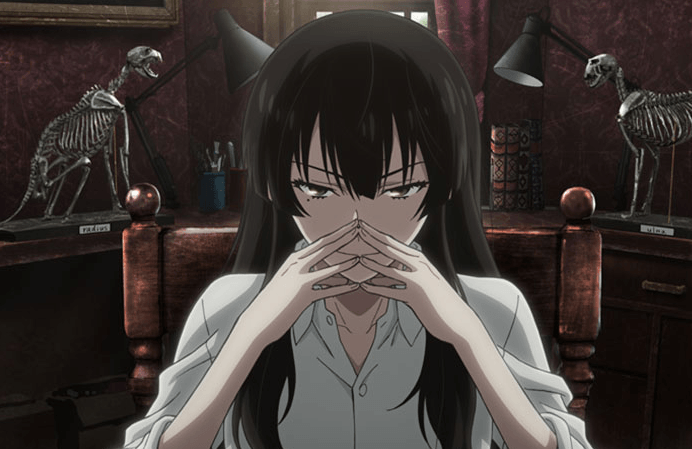
Sakurako comes from a prominent family, is incredibly smart, and is beautiful. She also is a perfect example of what some people do when faced with mental health crisis: they repress. Repress is a fancy term for “holding stuff inside.” This can be catastrophic to your health, and I’m not just talking about your mental health; physically you begin to decline as well. Now I haven’t read the manga, but I have watched the show so I’m going off of what I learned from that.
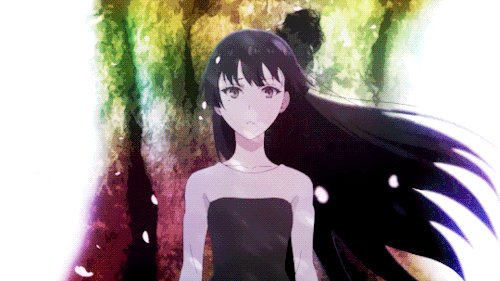
From what I can gather about Sakurako, she is the antisocial type because of something traumatic that happened in her past. She briefly mentions that her little brother died when they were kids, but we don’t really know the circumstances beyond that (unless you’ve read the manga…in which case don’t spoil it). She rarely lets her emotions show, but when they do, they are often strong and very direct.
In the case of Shotaro, with whom she has grown quite attached to, I’m assuming because he reminds her of her younger brother. She seems very distant often referring to him as “shōnen” (“boy”) instead of his real name. However there are two distinct instances when Shotaro has either put himself in danger or has become seriously injured, that Sakurako shows just how much the death of her brother has affected her. Especially when Shōtarō becomes injured protecting her, she shouts “DON’T DIE! DON’T DIE SHOTARO!” using his name, or is it the name of her brother? It’s intentionally meant to be confusing because that’s how Sakurako’s mind is: it’s a contradiction of analytical processes and overpowering emotions.
If you are one of the 350 Million People Worldwide that suffer from depression, if you are suffering from anxiety, if you are suffering from any sort of mental illness I want you to know something:
I’m here to say that it is okay to say that you hurt, that you matter very much, and you are no different than someone with any other medical condition; you just hurt in a different way. That’s the key to getting a handle on your mental health: remember that you matter, that there is someone out there who does care, and your story is an important addition to this world we live in.
Your story is important; you have something wonderful to give to this world. Sometimes anime can be a mirror of someone’s heart and soul. This is not weird; it doesn’t make you a freak. It makes you human.
What are some of your favorite shows? Who in an anime has spoken to you? Let’s have a discussion. That’s how change happens, that’s how stigmas gets kicked out.
If you want to read more on this topic, here are a couple of great articles done by Shrink Tank: Why Troubled Youth Love Anime, and Why You Should Too (Part One) & Why Troubled Youth Love Anime, and Why You Should Too (Part Two)
If you or someone you know are experiencing similar feelings or thoughts to please contact a medical professional or your local suicide hotline. For more information, please visit the MentalHealth.Gov Website for more information.

Featured Sponsor - JAST
The sweetest romance and the darkest corruption, the biggest titles and the indie darlings; for visual novels and eroge, there's nowhere better.
Big thank you to our supporters
From their continous support, we are able to pay our team for their time and hard work on the site.
We have a Thank-You page dedicated to those who help us continue the work that we’ve been doing.
See our thank you page